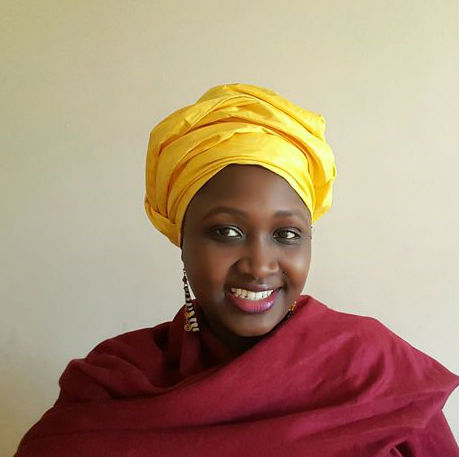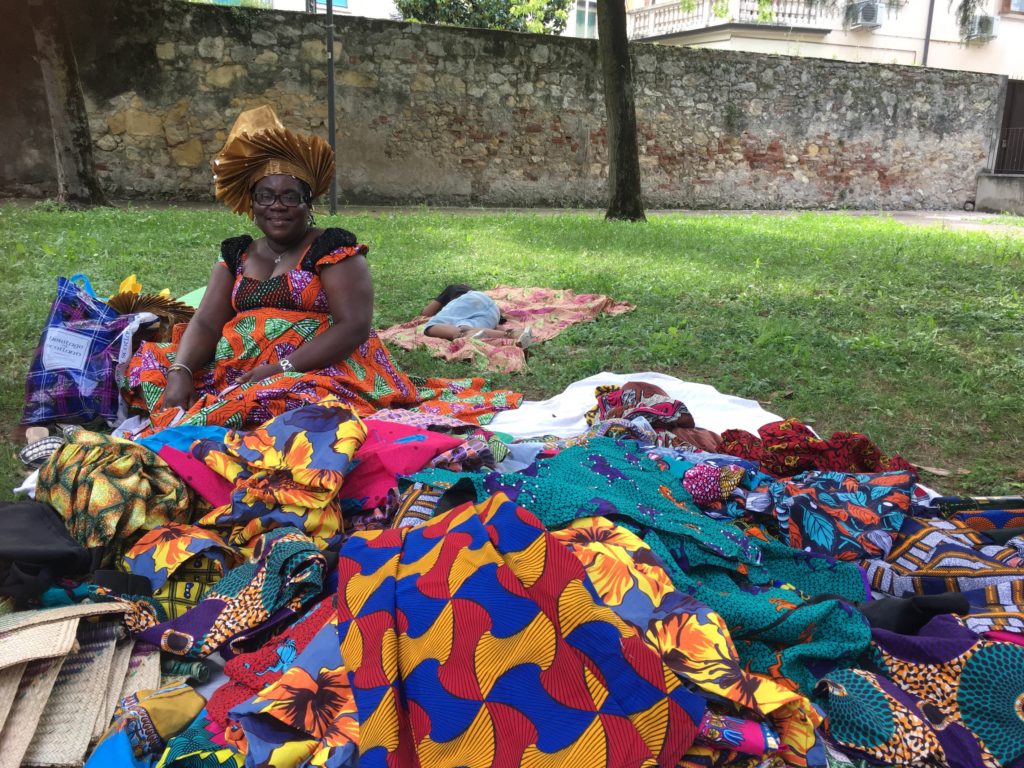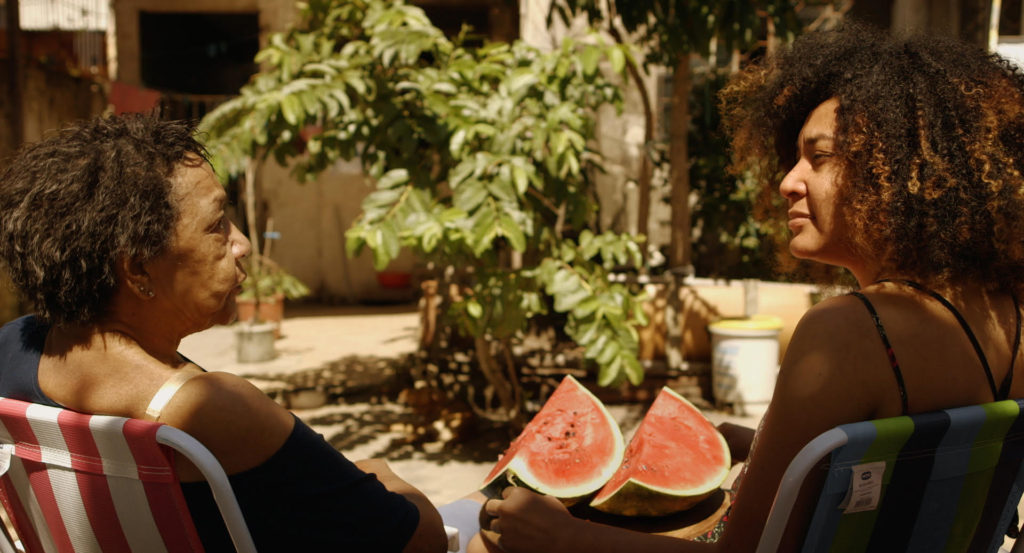After an experience with migration in Portugal and publishing 11 books, the writer Claudia Canto created an independent publisher to release biographies of Brazilian women living in Europe.
✍🏾 Juliana da Penha
While she was confined to a mansion in Lisbon working as an internal maid, without the slightest notion that writing could change her life, Claudia wrote. ” The only thing that moved me was that desire to write. I had no dimension, all I did was without no notion of what could happen”.
And it was in writing that she found the strength to face the experience as an undocumented migrant and live in her own skin the reality for women trapped in the international domestic labour market in Europe.
Claudia’s story might have been lost if not for her writing her experience in her first book “Death to the brushes” (2002).
The book was the author’s gateway to the literary world, and she continued her journey by launching 10 more books. In addition, “Death to the brushes” was translated into English by Margaret Anne Clarke an English professor specialized in Brazilian Studies and presented in the UK at two prestigious universities such as Oxford University and Kings College in London. The book is now being translated into Italian.

“Loneliness and the lack of contact with my family. It was a prison what I was living in.”
When the past is still present
Claudia says she received criticism from an anthropologist about her first book, saying that situations of exploitation of immigrant domestic workers in Europe have remained in the past. However, when we read the book, we realise that it is a timeless history. Although it happened in 2002, the story Claudia experienced is still happening in 2020.
The situation of migrant domestic workers has changed little “The main change was that at the time the use of the Internet was still starting and things were not shown as they are today,” explains Claudia.
Of all the difficulties, such as living confined to servitude and only one break a week that lasted a few hours, she tells us the most significant struggle “Loneliness and the lack of contact with my family. It was a prison what I was living in. It was much more psychological than physical prison. I could have taken my backpack and said: “I’m leaving for Brazil, I’m coming back”. But I had invested everything in that dream, and in time I realized that this story could change my life. And a writer was born there. So I clung to it”.
Claudia’s resilience is a characteristic present in the history of many women who live in another country. And that’s what she wants to show with her work by writing these biographies.
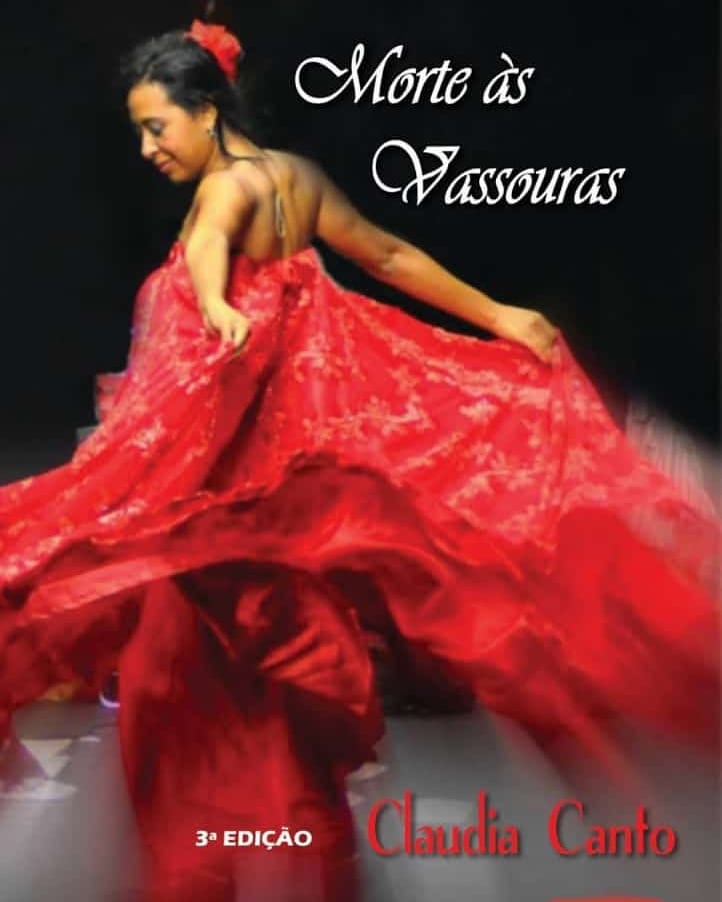
“With my fiction, poetry and autobiography books, I was not able to make a living with literature.“
A new career and life path
“With my fiction, poetry and autobiography books, I was not able to make a living with literature. So I struggled to find out how I would one day be able to support myself with literature”. Claudia journey to find her right path in literature was not simple. After recognizing that it would be challenging to make a living from book sales, she began to study alternatives.
She began to give talks at various institutions, she was a radio presenter, was a host at an interview program with a Youtube channel. At the talks she managed to sell some books, but still in quantities that were not enough to be able to realize her dream of living and paying her bills with literature. When she was almost giving up, an opportunity to travel to Switzerland and the contacts she made in the country with Brazilian women living there, began to change the course of her story. She was invited by a group of Brazilian writers to launch the book “Death to the brushes” at an event in Switzerland.
Because of the pandemic, the trip was postponed, but other opportunities arose. She discovered that other women also want to tell their stories through books. And so, when Claudia posted on Facebook that she was writing biographies, she found women interested in her work. This is how she wrote her first biography of a migrant woman, “Flor do sertão” by Maria Staub, a migrant woman from one of the poorest Brazilian regions, Piaui, living in Switzerland.
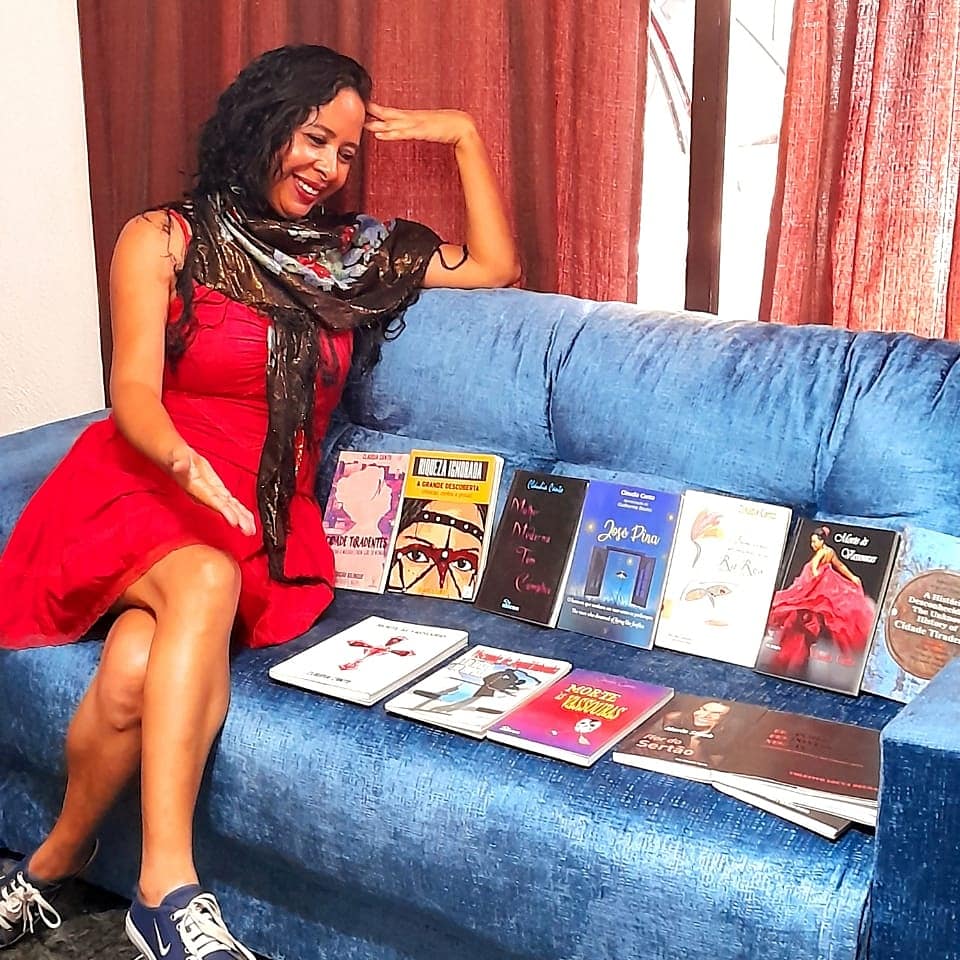
“These stories help them in this context because they listen to themselves after they send me the audio and begin to understand at what points they have been lost in their lives.”
Literature as a process of self-knowledge and healing
“When I began this process of seeking a livelihood through literature, I was already studying Quantum Physics. So I sought with certainty what would happen, I just didn’t know what it would be like. I knew that I would live off my literature. Within this perception and this objectivity that I already had, things started to happen. Many people believe that this is faith”, explains Claudia.
She believes that this work is also a healing process. The act of telling her stories often becomes therapeutic, since many women heal wounds that have remained open. “These stories help them in this context because they listen to themselves after they send me the audio and begin to understand at what point they have been lost in life. Freud himself said that in the therapeutic process we talk more and the therapist listens to us because when we talk we are able to find the lines that have become loose in their lives that have led us to certain situations”.

“Now women have the opportunity to write their stories.”
Deconstructing the monopoly of biographies
When we think of biographies, we imagine the names of “important” people. But today ordinary people can also have their life stories published. Claudia sees this change as a paradigm shift “Biographies were reserved only for actors, TV stars and Hollywood. It is wonderful what is happening. There are several aspects to this process, but one of the most important is that the story was always told by the people who were in evidence, who had more money, most part of the times they were white, the supposed winners. And there is another side to the story that was not told. Now women have the opportunity to write their stories.”
In her process of creating these biographies, Claudia receives the audio narrations and is gradually developing an identity for this work, done in synergy with these women.
“I compose the psyche of this woman, both through the narrative and the tone of their voice. And also when we speak and look at each other. Then I do a general investigation, very fruitful, on the life of this woman “.
The work of going deeper into the experiences, which are often painful, is not a simple task: “It is not simply an account. What I try to do is to enter into the soul of these women. In many audios, these women are crying because there are wounds that are still exposed and that they have never had the opportunity to treat with a psychologist. After all, we know that it is costly”. says Claudia.

“In many audios, these women are crying because there are wounds that are still exposed and that they have never had the opportunity to treat with a psychologist.”
Discovering new literary paths
The author is in the process of understanding the literary exercise she is carrying out by writing the biography of these women. “I find myself so involved in the stories that I often write in the first person as if they were writing their biographies. And this makes them feel more embraced in the works that are being born. I say that the book has to be hers. When I write something in which they differ, then I don’t put it in the book. The work has to be suitable for them because it is them stories”, explains Claudia.
She distances herself from the position of judge or critic, she simply writes the stories. However, she uses resources that help this work “I abuse and use a more refined language and vocabulary, a very erudite Portuguese, once in a while I put slang of the places they came from to suit the time. I give a deepening not so poetic but rather lyrical tone. Often I use fictional and metaphorical resources to transcribe and give more brilliance and lyricism to these stories”.
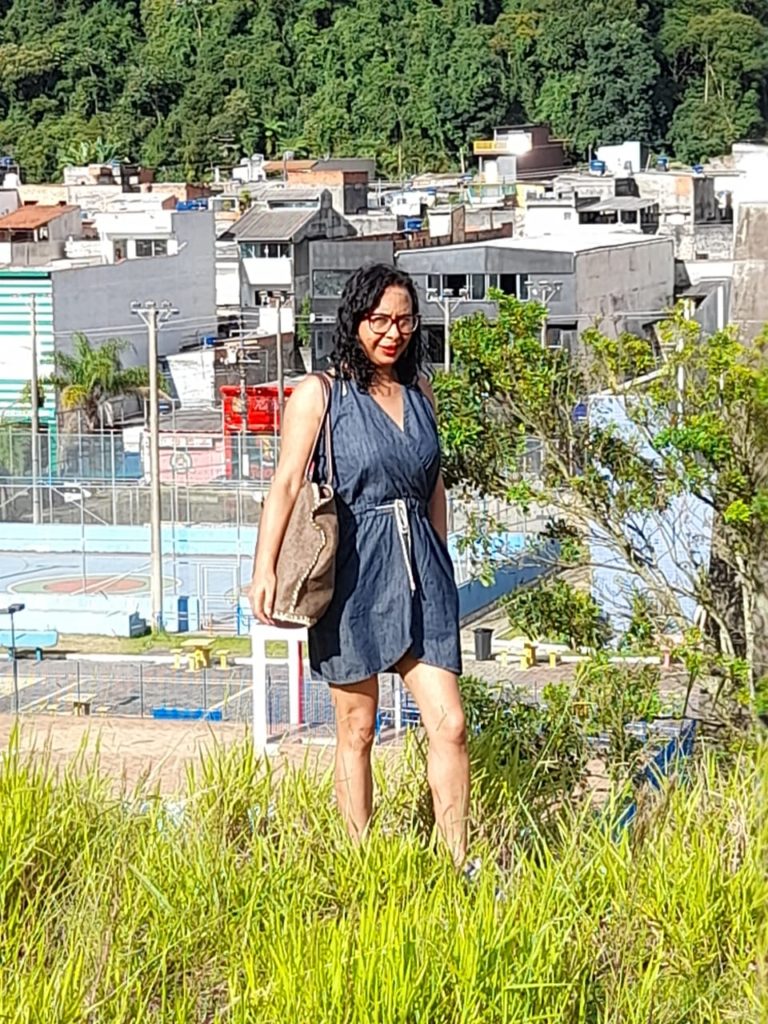
“I am from the outskirts. I am a black woman. If it were not for me to tell my story, that story would die with me.”
Stories that could be movies
“I am from the outskirts. I am a black woman. If it were not for me to tell my story, that story would die with me. It happens with thousands of other black women who live in the outskirts. They are anonymous heroines, who have a story worthy of cinema. These stories will never be told unless we become protagonists of our stories”, states Claudia.
She tells us that all the stories that she has the opportunity to get to know could quickly become movie scripts. “I hear many stories of marginalized women, which are wonderful stories, which would take no trouble for a Hollywood screenwriter to use fiction to tell. So they’re vibrant stories from real life, and they get lost.”
Claudia says that one of the biographies she is writing is of a Swiss woman who will tell a little about trauma, as to how she overcome an abortion. In this process, she has the help of her partner, Tomas Mielenhausen, a German citizen living in Brazil, who helps her by doing translations into German and English. “She sends the audios in German, Tomas translates into Portuguese and I write in Portuguese, then Tomas translates into German” explains Claudia.
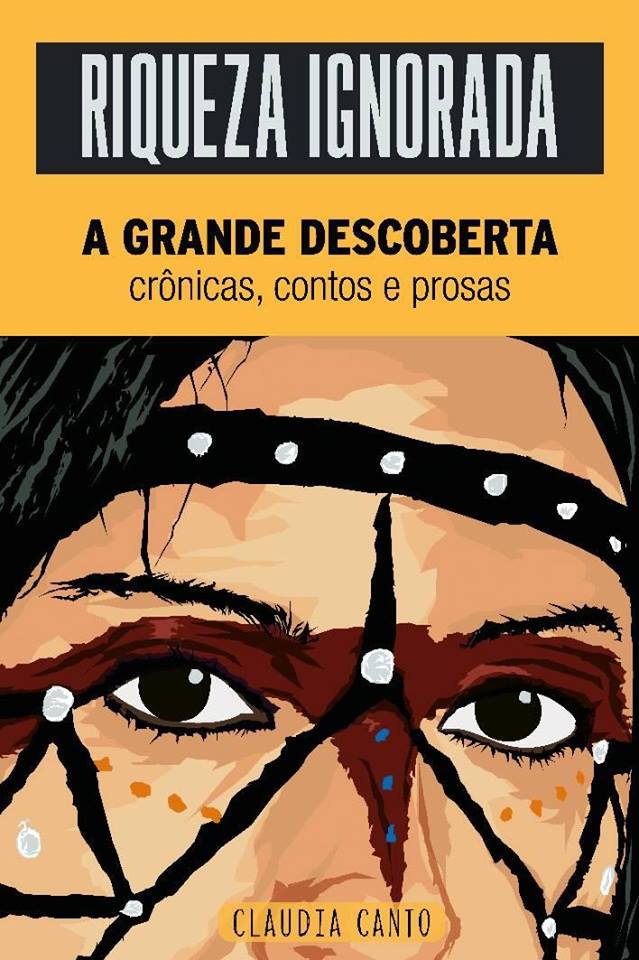
“In most cases of Brazilian women in Europe, there is always a fine line that unites them, and that also unites me because I too have lived as an undocumented migrant in Europe.“
The narrative of migration
“In most cases of Brazilian women in Europe, there is always a fine line that unites them, and that also unites me because I too have lived as an undocumented migrant in Europe. Usually, this line is one of moral harassment, sexual harassment, abuse and discrimination. So these wounds are very similar. What differentiates these stories is childhood and how these women shaped themselves to face all this”, explains Cláudia.
She feels that today is the best time to dedicate herself to this work that she sees as her mission. “I have reached a maturity to talk about these issues. Before, my rebellion perhaps did not allow me to see many things as I see them today. If I had written before I wouldn’t have been so fruitful with these biographies. Today I believe in the revolution through love, in the sacred feminine. So I try to find that divine in these women so that they can overcome this revolt, which is still so present in the experience of many of them”.
Claudia’s work with migrant women biographies is bringing fruits, and she created the Claudia Canto literary stamp to publish these biographies. She works with a team that guarantees the entire book production process, publication, translation into English and German and distribution.
Cláudia believes this work is part of a collective process, an alternation of power and knowledge in the world. And when I ask her how she sees this work in the future, she believes that these stories will become movies.
But the most important thing for her is that now, women have a voice. “I believe that we will unite through these stories to strengthen ourselves and win the world. No doubt the revolution will be feminine. The more women awaken to their sacred, the more they will strengthen themselves and get rid of the abuses”.
“The more the woman awakens to her sacred, the more she will strengthen herself and get rid of the abuses”.
www.claudiacanto.com.br

